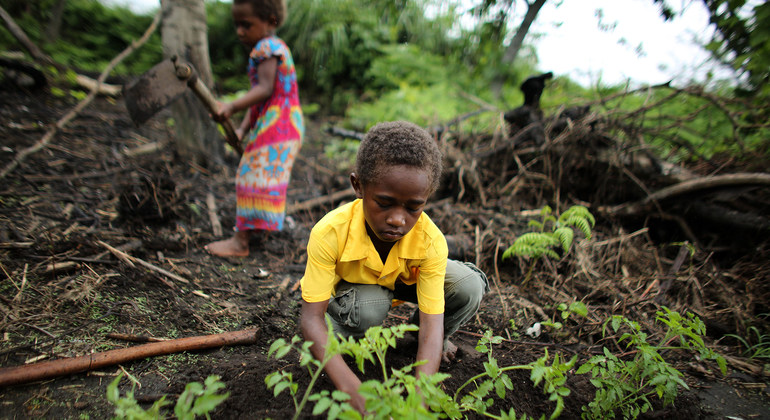“I cannot emphasize enough that time is running out. Irreversible climate tipping points lie alarmingly close. Civil society is watching closely and is running out of patience,” he said in remarks delivered virtually.
The UN chief urged Governments to step up efforts to achieve the Paris Agreement, which seeks to limit global temperature rise to 1.5 degree Celsius above pre-industrial levels.
The 2015 accord requires countries to commit to increasingly ambitious climate action through plans known as Nationally Determined Contributions (NDCs).
Mr. Guterres warned that current NDCs will lead to a “catastrophic” rise of 2.7 degrees, and he called for more ambition now.
Leaders must act now
“We can only meet the 1.5 degree goal if all G20 countries, which are responsible for 80 per cent of global emissions, pledge more decisive action in new or updated NDCs.”
While urging developed countries to take the lead, he also called for emerging economies to further cut emissions.
Stressing that “all leaders must recognize that we are in the middle of a climate emergency”, the Secretary-General urged Governments to enhance their NDCs and domestic policies “as often as necessary, and without delay, until we are collectively on the right track.”
Phase out coal
On emissions, Mr. Guterres stated that phasing out coal is the most effective step towards limiting global temperature rise. Despite global progress over the past year, he pointed to the long journey that remains.
He welcomed China’s recent announcement on ending international financing of coal-based power, and called for commercial banks and other private financers to follow suit.
“And I ask that coalitions of governments and public and private finance institutions unite to scale up existing financial mechanisms to retire coal and fund a just transition toward universal access to renewable energy,” he added.
Honour $100 billion commitment
Regarding financing for climate action, “we all know what needs to be done”, said the Secretary-General.
“Developed countries have a responsibility to increase their individual pledges and honour their collective commitment to deliver the promised $100 billion a year. This is an essential question of trust.”
Meanwhile, support for adaptation “remains the neglected half of the climate equation”, he said, receiving just 25 per cent of climate finance and representing a paltry 0.1 per cent of private funding.
Mr. Guterres again urged donors and development banks to allocate at least 50 per cent of their climate support towards adaptation and resilience, adding that needs are increasing every year.
“Developing countries already need $70 billion dollars for adaptation, and that figure could more than quadruple to $300 billion dollars a year by the end of this decade. Failure to deliver means massive loss of lives and livelihoods,” he said.
Take the high road
The Secretary-General encouraged countries to use the ministerial meeting to rebuild trust necessary to make COP26 in Glasgow a success.
“Young people, in particular, continue to lead the growing calls for more ambition. They will hold us accountable. Climate justice demands that we bequeath them a liveable planet,” he said.
Countries must take the long view, and the moral high ground, said the UN chief “so that this and future generations can look forward to peace, opportunity and dignity for all on a healthy planet.”



